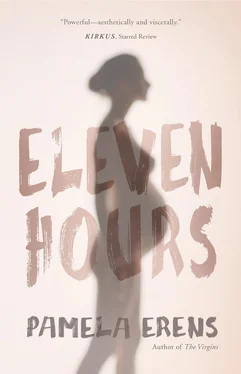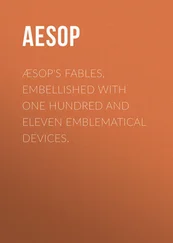Pamela Erens - Eleven Hours
Здесь есть возможность читать онлайн «Pamela Erens - Eleven Hours» весь текст электронной книги совершенно бесплатно (целиком полную версию без сокращений). В некоторых случаях можно слушать аудио, скачать через торрент в формате fb2 и присутствует краткое содержание. Год выпуска: 2016, Издательство: Tin House, Жанр: Современная проза, на английском языке. Описание произведения, (предисловие) а так же отзывы посетителей доступны на портале библиотеки ЛибКат.
- Название:Eleven Hours
- Автор:
- Издательство:Tin House
- Жанр:
- Год:2016
- ISBN:нет данных
- Рейтинг книги:4 / 5. Голосов: 1
-
Избранное:Добавить в избранное
- Отзывы:
-
Ваша оценка:
- 80
- 1
- 2
- 3
- 4
- 5
Eleven Hours: краткое содержание, описание и аннотация
Предлагаем к чтению аннотацию, описание, краткое содержание или предисловие (зависит от того, что написал сам автор книги «Eleven Hours»). Если вы не нашли необходимую информацию о книге — напишите в комментариях, мы постараемся отыскать её.
Eleven Hours
Eleven Hours — читать онлайн бесплатно полную книгу (весь текст) целиком
Ниже представлен текст книги, разбитый по страницам. Система сохранения места последней прочитанной страницы, позволяет с удобством читать онлайн бесплатно книгу «Eleven Hours», без необходимости каждый раз заново искать на чём Вы остановились. Поставьте закладку, и сможете в любой момент перейти на страницу, на которой закончили чтение.
Интервал:
Закладка:
In a few minutes Franckline has Marina back on the page she needs, a requisition for upgraded newborn scales.
“I don’t know how you figure it out,” Marina says, a bit grudgingly.
“I keep telling you, you don’t have to figure it. Just mess with it. There’s always a way to undo what you’ve done.”
The nurse in room 7 puts down the magazine she’s been reading and reports, before going out, that it’s been twelve minutes since Lore’s last contraction. Lore lies in her bed, unspeaking but restless. She laboriously shifts position and then, a few moments later, shifts again. She breathes heavily. She says she wishes things would keep going.
“Yes, yes,” says Franckline, soothingly. What more can she say? She learned long ago never to make promises to a woman in labor. Fast labors slow down, slow labors become fast. Anything can happen, and often does. Women who say they will never accept an epidural beg for the epidural, beg to be knocked out entirely. Babies twisted up in the umbilical cord, starved of oxygen for a little too long. Birthmarks obliterating a child’s face, absent fingers or toes. Fifty-hour labors, a mother suffering a heart attack while pushing (that one was only thirty-two years old, grossly overweight, yes, but seemingly hale, with an energetic, generous laugh; they saved her, but it was touch and go). And of course there was Franckline’s own child, three days old (he would never be more than three days old), who never once cried, but a few times lifted a weak half fist to punch the sky.
“Yes, yes”—such a weak phrase. It needles her briefly with shame. Yes, yes and no, no : these were the only two sentences she could bring out of herself when she first came to the States. I agree, I don’t agree. I accept, I reject. The two elemental positions, when everything else has been taken away. Those first weeks in New York, scared out of her ability to recollect anything in the Kreyol-English textbook Bernard had made her study.
“Have you a book, or some music?” she asks Lore. Lore shakes her head and twists at that worrisome ring. Well, then, can she turn on the TV? Another no. Franckline feels a flickering of exasperation. Why is there so much No in this girl? Why does she seem to take a grim pleasure in having nothing, no one, in refusing distraction or comfort?
Franckline takes Lore’s chart from the pouch beside the door and peruses it again. She removes Lore’s birth plan and sits down with it at the computer desk. She scanned it first thing when Lore arrived but has yet to read it point by point. The date on it is about six weeks ago, October 27, 2004. Lore has organized the plan under different headings: there are REQUESTS; INTERVENTIONS; IN THE EVENT OF A C-SECTION; BABY CARE IMMEDIATELY AFTER BIRTH; IN THE EVENT THAT THE BABY IS ILL OR HANDICAPPED; IN THE EVENT THAT THE BABY DIES.
IN THE EVENT THAT THE BABY DIES, I seek the following:
to be able to see and hold the baby for as long as I wish
not to be given tranquilizers or drugs that blunt feeling
to arrange the funeral myself
Lore stares up at the ceiling, as if searching there for the baby who may or may not arrive, who will probably live but also might conceivably die. Franckline silently offers her admiration. Most birth plans specify that the patient wants a natural childbirth or hot compresses to reduce the chance of an episiotomy, wants to room in with the baby and so forth. But the babies in these plans are never going to have deformed hearts or damaged brains. They are always going to be born with the right number of limbs; they are always going to survive.
There is another form, a health proxy, tucked behind the birth plan. I, Lore Tannenbaum of New York, New York, being of sound mind … these instructions apply if I am permanently unconscious, or conscious but have irreversible brain damage … I do not want mechanical respiration … I do not want tube feeding … Witnessed by Diana Massie, residing at 501 Manhattan Ave., NY, NY … Franckline flips back a few pages. Lore requests no Demerol. No Pitocin. No epidural. No supplementary bottles. No enema. No shaving.
No, no, and again no.
“I went over all of that with Dr. Elspeth-Chang,” says Lore.
“Yes,” says Franckline. She returns the plan to its folder. “Let’s take a walk,” she announces. “It might get you going again.” This may be true but will more likely simply serve as a distraction for Lore. She adds: “Having a child is usually just a long patience.”
How supple her speech is now! How she surprises herself at times! She is proud of her English; after eleven years it is almost flawless. After that first fright she took to it quickly, making her new neighbors, the ones of long residence, talk with her, correct her. Bernard said: You see, I told you. You have brains, quickness. You’ve got to study and get into school. Here you could become a nurse .
She stands close while Lore pushes herself off the bed, ready to lend a hand, but Lore is steady on her feet. The hallway is more brightly lit than the labor room, although the tan-yellow linoleum floor has a sickly hue. Lore moves slowly now. They pass an empty room, and then another to which Marina assigned a fifteen-year-old shortly before Lore arrived. Often Franckline gets the teenagers, because Marina knows she has the patience for them, won’t lecture them when they cry that pushing is “too hard” or eat Ring Dings and drop the wrappers on the floor. Franckline gets many of the difficult cases: she is seen as good with the obstreperous, the addled, the distraught. But this girl and her mother spoke mostly Spanish, so Marina gave the room to Alta. Franckline can hear the mother speaking to her daughter in a low, rapid voice, as if she has something urgent to impart before the baby’s arrival. A whiff of fast-food burger wafts out of the open door, making Franckline queasy. Surely the girl can’t be eating one.
They walk. Lore stops for a moment to adjust her gown, which has gotten caught up between her legs. All day the laboring and their caretakers trickle in and filter out and are replaced by different girls, women, husbands, mothers, sisters, friends. After today, Franckline will never again see this young woman with limp, mussed hair who has just exited room 11, Elmo slippers on her feet, heading toward the nurses’ station; or the girl, ten or twelve years old, about to become somebody’s older sister or cousin, who is repeatedly filling a conical cup at the water cooler and dumping the water back down the drain. Franckline feels a helpless, pulsing goodwill toward them all, tiny fragments of the great whole busy life of the universe that God in His goodness allows to unfold in her vision.
Touching her cross, she passes the mussed-hair woman, the girl, and they dissolve back into the mystery of who they are and where they soon will be going. Outside a closed room sits a man wearing a Mets cap, his hands folded in his lap. Hispanic, probably Dominican, Franckline thinks, in his midtwenties or so. Franckline greets him and the man tips up his chin in acknowledgment. A muffled cry arises from within the room, and then, right afterward, the patter of women speaking, comforting. The man stares at his palms and hums quietly to himself. Inside is women’s work; the place for a man is out here. That has never been Bernard’s style. Even that last time, when Franckline was rushed here in premature labor at twenty-two weeks, Bernard stayed in the room for the whole messy, agonizing thing.
At the double doors, past a smaller nurses’ station, a wall plaque displays an arrow to Pulmonary. The station nurse nods to Franckline and buzzes them through. The corridor here, though it looks exactly like the one in Maternity, has its own distinct and different atmosphere and smell: more vinegar, less sweat. It is emptier, more disquieting. Lore takes her time. About halfway down the first long line of doors, a clatter arises, and abruptly a wheelchair is beside them, with a man in perhaps his late seventies inside. Small, trim, with yellowed white hair, he turns to look at Lore with alert eyes. As the chair moves ahead, pushed by a young, dark-haired nurse, he twists back to keep her in his sight, and unexpectedly, Lore breaks into a responsive smile. In a loud voice, the man says, “You’ll be fine, dear.”
Читать дальшеИнтервал:
Закладка:
Похожие книги на «Eleven Hours»
Представляем Вашему вниманию похожие книги на «Eleven Hours» списком для выбора. Мы отобрали схожую по названию и смыслу литературу в надежде предоставить читателям больше вариантов отыскать новые, интересные, ещё непрочитанные произведения.
Обсуждение, отзывы о книге «Eleven Hours» и просто собственные мнения читателей. Оставьте ваши комментарии, напишите, что Вы думаете о произведении, его смысле или главных героях. Укажите что конкретно понравилось, а что нет, и почему Вы так считаете.












